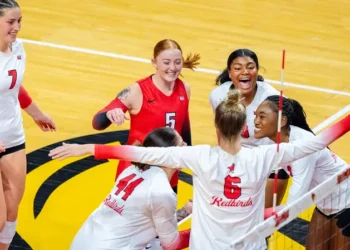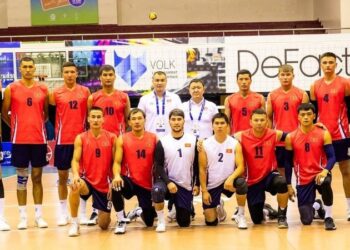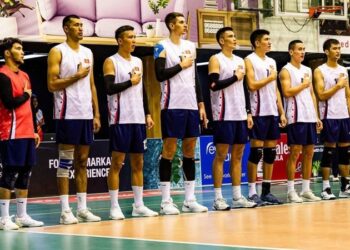U21 Women’s Volleyball World Championship Loss to Vietnam, Indonesia Focuses on Physical and Mental Recovery
Indonesia’s campaign at the 2025 U21 Women’s Volleyball World Championship took an unexpected setback after a hard-fought loss to Vietnam in their latest group-stage encounter. The match, held on Thursday night in Manila, saw the young Indonesian squad falter in key moments, ultimately falling 3–1 to a well-organized Vietnamese side. Despite flashes of brilliance, Indonesia’s inconsistency, combined with Vietnam’s disciplined play, left the team facing a crucial period of reflection and recovery.
Head coach Eko Haryanto admitted after the match that the result was disappointing but stressed the importance of shifting focus toward the next challenge. “We knew Vietnam would be a tough opponent. They have speed, good court coverage, and strong communication. We had our chances, but our execution under pressure let us down,” Eko said. “Now, our priority is to restore both physical freshness and mental confidence before our next game.”
The match began with Indonesia showing promise, taking an early lead in the first set with aggressive serving and quick middle attacks. However, Vietnam’s defense proved resilient, digging out seemingly impossible shots and countering with precise offensive combinations. The Vietnamese hitters, led by captain Tran Thi Bich, found consistent success exploiting gaps in the Indonesian block.
Indonesia dropped the first set 25–22 before rallying to take the second 26–24 in a tense finish. The third and fourth sets, however, saw a dip in energy and focus from the Indonesian side. Unforced errors, particularly from the service line and in back-row communication, allowed Vietnam to seize momentum and close out the match 25–18, 25–20.
Fatigue appeared to be a significant factor. Having played three matches in four days, several players looked physically drained during the later stages of the game. Middle blocker and vice-captain Putri Rahma admitted that the heavy schedule had taken a toll. “We were pushing ourselves hard, but our legs felt heavy, and our reactions slowed. At this level, even a small drop in intensity can cost you points,” she said.
In response, the Indonesian coaching staff has already implemented a recovery-focused training plan. The team will spend the next two days prioritizing physiotherapy sessions, ice baths, light stretching, and nutrition optimization. The aim is to restore energy levels without overloading the players ahead of their upcoming matches.
Equally important is the mental aspect. Sports psychologist Rina Widjaja, who has been traveling with the team, emphasized that bouncing back from a loss requires more than just rest. “For young athletes, confidence is fragile. After a defeat, the key is to process the result constructively—understanding what went wrong while reinforcing what they did well. Dwelling on mistakes without context can lead to fear in the next match,” Rina explained.
The squad has scheduled team discussions and one-on-one sessions to address mental readiness. Activities such as visualization drills, mindfulness exercises, and tactical video analysis will form part of the recovery plan. By combining these approaches, Indonesia hopes to rebuild the sharpness and belief that carried them through their earlier victories in the tournament.
Vietnam’s win also serves as a reminder of the rising standard of Southeast Asian women’s volleyball at the youth level. Both nations have invested in junior development programs in recent years, and this match showcased the benefits—speed, technical skill, and strong team cohesion were on display from both sides.
For Indonesia, the loss does not end their World Championship hopes. They remain in contention for the knockout rounds but will likely need strong performances in their remaining group-stage matches. The team’s ability to adapt, recover, and respond to adversity will be critical in determining how far they can go.
Setter and captain Anisa Putri offered a determined perspective. “We’re young, and every match is a lesson. Vietnam played very well today, but we also saw that when we stick to our game plan, we can match them point for point. Now, it’s about making sure we bring that focus from the first ball to the last.”
Indonesia will return to the court in two days to face a tough opponent in Japan, a team known for relentless defense and lightning-quick transitions. The coaching staff knows that to compete at that level, the players must be at their physical peak and mentally resilient.
As the tournament continues, the loss to Vietnam may yet become a turning point for this promising Indonesian squad. If they can harness the experience to sharpen their mental toughness and maintain their physical energy, the team could emerge stronger in the crucial stages ahead. For now, the message from the camp is clear: res
t, reset, and rise again.











